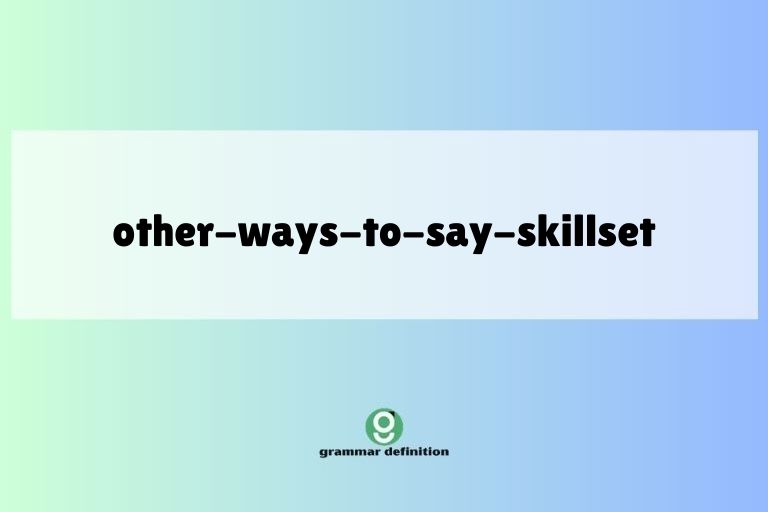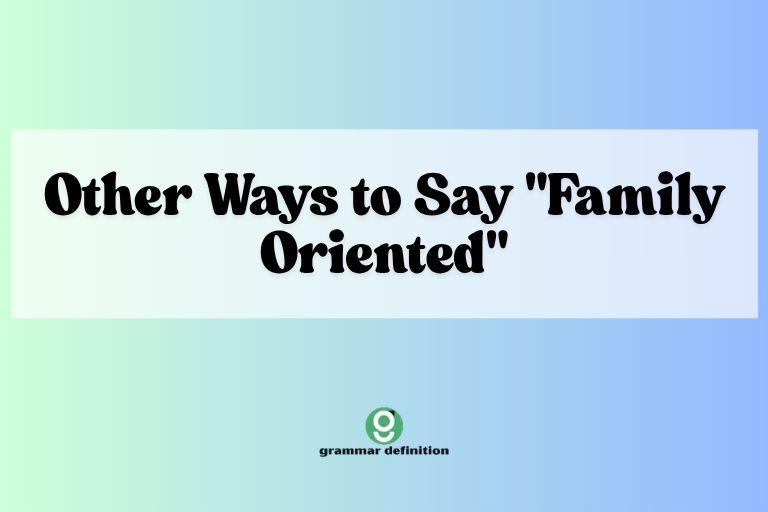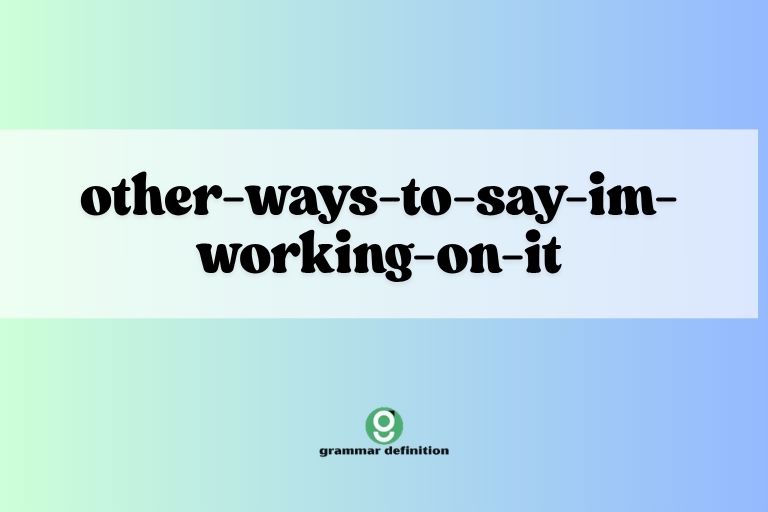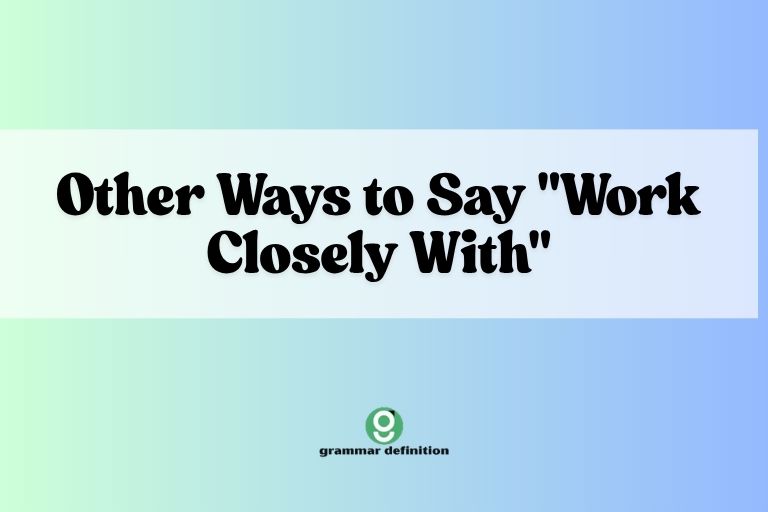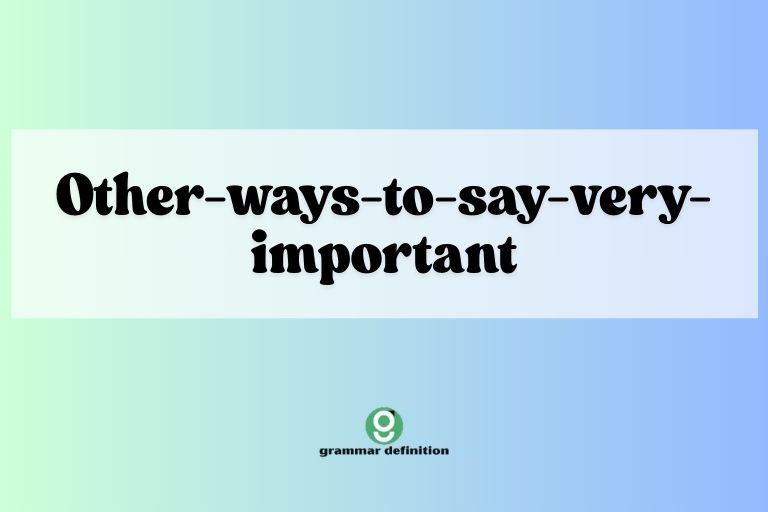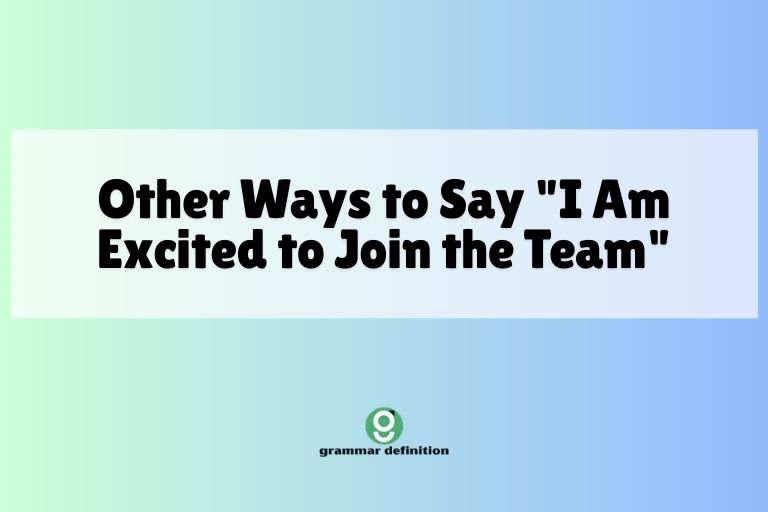Beyond “Sounds Good”: Diverse Ways to Express Agreement
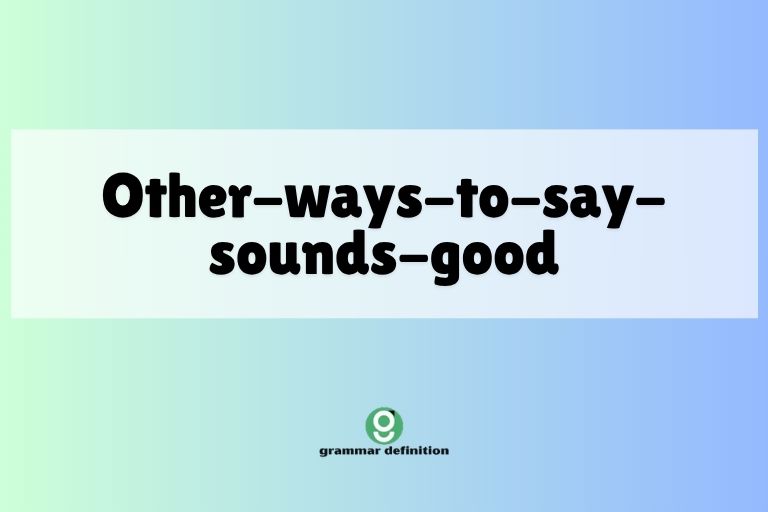
Mastering English involves more than just understanding basic grammar; it’s about grasping the nuances that make your communication effective and engaging. One such nuance is finding alternatives to common phrases like “sounds good.” While perfectly acceptable, relying solely on this phrase can limit your expressiveness and make your speech sound repetitive.
This article explores a wide array of alternatives to “sounds good,” each carrying a slightly different tone and suitable for various contexts. Whether you’re a student, a professional, or simply an English enthusiast, this guide will empower you to communicate with greater precision and flair.
This guide will delve into different categories of expressions, providing detailed explanations, examples, and practice exercises. By the end, you’ll be equipped with a richer vocabulary to convey agreement in a way that’s both accurate and impactful.
Table of Contents
- Introduction
- Definition: Expressing Agreement
- Structural Breakdown of Agreement Phrases
- Types and Categories of Agreement Phrases
- Examples of Agreement Phrases
- Usage Rules for Agreement Phrases
- Common Mistakes When Expressing Agreement
- Practice Exercises
- Advanced Topics in Expressing Agreement
- Frequently Asked Questions
- Conclusion
Definition: Expressing Agreement
Expressing agreement in English involves using phrases and expressions that indicate your concurrence with a statement, plan, or proposal. These expressions vary widely in formality, intensity, and context.
The function of agreement phrases is to signal understanding, acceptance, and often, a willingness to participate or cooperate. They play a crucial role in maintaining positive communication and fostering collaborative environments.
Agreement can be classified based on several factors: formality (formal vs. informal), intensity (enthusiastic vs. neutral), and conditionality (unconditional vs. conditional). Understanding these classifications helps you choose the most appropriate expression for any given situation. For example, “Indeed” is a formal expression, while “Cool” is informal. “Absolutely!” suggests strong agreement, whereas “I suppose so” is more hesitant.
Structural Breakdown of Agreement Phrases
Agreement phrases can be structurally simple or complex, ranging from single-word affirmations to elaborate sentences. Here’s a breakdown of common structural elements:
- Single-word affirmations: These are the simplest forms, such as “Okay,” “Sure,” “Right,” and “Yep.”
- Short phrases: These typically consist of a few words, like “Sounds good,” “I agree,” “That works,” and “Makes sense.”
- Clauses with verbs of agreement: These involve verbs like “agree,” “concur,” or “approve,” often followed by a clause explaining the point of agreement. For example, “I agree with your assessment” or “I concur with the proposed plan.”
- Conditional statements: These express agreement contingent on certain conditions being met. For instance, “That sounds good, provided we can finalize the budget.”
The choice of structure often depends on the context and the desired level of formality. In casual conversations, shorter and simpler forms are generally preferred.
In formal settings, more elaborate and precise expressions are typically used.
Types and Categories of Agreement Phrases
To better understand the nuances of expressing agreement, let’s explore different categories based on the tone and context they convey.
Affirmative Agreement
Affirmative agreement indicates a simple, straightforward concurrence without necessarily expressing strong enthusiasm. These phrases are suitable for everyday situations where you want to show that you understand and accept a proposal or statement.
They are generally neutral in tone and widely applicable.
Enthusiastic Agreement
Enthusiastic agreement conveys strong approval and excitement. These phrases are ideal for situations where you want to demonstrate your support and eagerness.
They are often used in informal settings or when you want to create a positive and energetic atmosphere.
Casual Agreement
Casual agreement is used in informal settings with friends, family, or close colleagues. These phrases are relaxed and conversational, often incorporating slang or colloquialisms.
They are suitable for situations where you want to maintain a friendly and approachable tone.
Formal Agreement
Formal agreement is appropriate for professional settings, academic discussions, or interactions with superiors. These phrases are polite, precise, and avoid slang or colloquialisms.
They are used to convey respect and maintain a professional demeanor.
Conditional Agreement
Conditional agreement expresses acceptance contingent on certain conditions being met. These phrases are useful when you agree with the general idea but have specific requirements or concerns that need to be addressed.
They allow you to express your agreement while also setting boundaries or expectations.
Examples of Agreement Phrases
Let’s explore a variety of examples for each category, illustrating their usage in different contexts.
Affirmative Agreement Examples
The following table provides examples of affirmative agreement phrases, showcasing their versatility in everyday conversations.
| Phrase | Example Sentence |
|---|---|
| Okay | “Let’s meet at 2 PM.” “Okay, that works for me.” |
| Sure | “Can you send me the report by tomorrow?” “Sure, I’ll get it to you.” |
| Right | “We need to finalize the presentation.” “Right, let’s schedule a meeting.” |
| Yep | “Are you coming to the party?” “Yep, I’ll be there.” |
| I agree | “I think we should focus on marketing.” “I agree, that’s a good strategy.” |
| That’s correct | “So the total is $50?” “That’s correct.” |
| That’s right | “We need to finish this by Friday.” “That’s right, no delays.” |
| Understood | “Please submit your reports on time.” “Understood, I will.” |
| Noted | “The deadline has been extended.” “Noted, thank you for letting me know.” |
| Acknowledged | “We need to address this issue immediately.” “Acknowledged, I’ll take care of it.” |
| I understand | “This is a complex situation.” “I understand, we’ll work through it.” |
| That makes sense | “We need to cut costs.” “That makes sense, where can we start?” |
| That seems reasonable | “A 10% discount is fair.” “That seems reasonable to me.” |
| I see your point | “We need to consider the risks.” “I see your point, let’s analyze them.” |
| Fair enough | “You can leave early today.” “Fair enough, thank you.” |
| Agreed | “Let’s proceed with this plan.” “Agreed, let’s get started.” |
| Precisely | “This requires careful attention.” “Precisely, we can’t afford mistakes.” |
| Exactly | “This is the best solution.” “Exactly, I couldn’t agree more.” |
| Affirmative | “Are you ready to proceed?” “Affirmative, I’m ready.” |
| Indeed | “This is a challenging task.” “Indeed, but we can handle it.” |
| You’re right | “The weather is beautiful today.” “You’re right, it is.” |
| That’s true | “Time is running out.” “That’s true, we need to hurry.” |
| I concur | “This strategy is effective.” “I concur, let’s implement it.” |
| Yes, I agree | “Should we order pizza for lunch?” “Yes, I agree, that sounds great.” |
As demonstrated in the table, these phrases offer simple and effective ways to show agreement in various conversational settings. They are universally understood and easy to incorporate into your daily interactions.
Enthusiastic Agreement Examples
The following table presents phrases that express enthusiastic agreement, perfect for conveying excitement and support.
| Phrase | Example Sentence |
|---|---|
| Absolutely! | “Should we go to the beach this weekend?” “Absolutely! That sounds amazing.” |
| Definitely! | “Do you think this is a good idea?” “Definitely! I’m fully on board.” |
| I’m in! | “We’re going to try a new restaurant.” “I’m in! Tell me when and where.” |
| Sounds fantastic! | “We’re planning a surprise party.” “Sounds fantastic! I’d love to help.” |
| Sounds great! | “Let’s go for a hike tomorrow.” “Sounds great! I need some fresh air.” |
| Wonderful! | “We got the contract!” “Wonderful! That’s fantastic news.” |
| Excellent! | “We finished the project ahead of schedule.” “Excellent! Great job, everyone.” |
| Perfect! | “The meeting is set for 10 AM.” “Perfect! I’ll be there.” |
| Awesome! | “We won the game!” “Awesome! I knew we could do it.” |
| Terrific! | “We got a five-star review.” “Terrific! That’s amazing feedback.” |
| Fantastic! | “I got promoted!” “Fantastic! Congratulations!” |
| Brilliant! | “I have a great idea for the project.” “Brilliant! Tell me more.” |
| Super! | “We’re going to Disneyland!” “Super! I’ve always wanted to go.” |
| Marvelous! | “The concert was incredible.” “Marvelous! I wish I had been there.” |
| Outstanding! | “Your presentation was excellent.” “Outstanding! Thank you for the compliment.” |
| Spectacular! | “The fireworks were stunning.” “Spectacular! It was a night to remember.” |
| Sensational! | “The food at that restaurant is amazing.” “Sensational! I must try it.” |
| Incredible! | “The special effects were mind-blowing.” “Incredible! I can’t believe how realistic they looked.” |
| Amazing! | “We raised a lot of money for charity.” “Amazing! That’s such a worthy cause.” |
| Fabulous! | “The party was a huge success.” “Fabulous! Everyone had a great time.” |
| You bet! | “Are you excited about the trip?” “You bet! I can hardly wait!” |
| I’d love to! | “Want to grab coffee after work?” “I’d love to!” |
| Yes, please! | “Would you like some cake?” “Yes, please!” |
These expressions are ideal for situations where you want to show enthusiasm and support, making your communication more engaging and positive.
Casual Agreement Examples
The following table showcases casual agreement phrases suitable for informal conversations with friends and family.
| Phrase | Example Sentence |
|---|---|
| Cool | “Let’s watch a movie tonight.” “Cool, what should we watch?” |
| Alright | “I’m going to the store, need anything?” “Alright, grab me some milk.” |
| Sounds like a plan | “We should go camping next weekend.” “Sounds like a plan, let’s do it.” |
| Sure thing | “Can you help me with this?” “Sure thing, I’m happy to help.” |
| No problem | “Thanks for picking me up.” “No problem, anytime.” |
| Yup | “Are you ready to go?” “Yup, let’s go.” |
| Totally | “That movie was hilarious.” “Totally, I couldn’t stop laughing.” |
| For sure | “Are you coming to the party?” “For sure, I wouldn’t miss it.” |
| Absolutely | “Do you want to grab some pizza?” “Absolutely, I’m starving.” |
| Right on | “We need to stand up for what’s right.” “Right on, I agree.” |
| Word | “This song is fire!” “Word, I love it too.” |
| Bet | “I’ll see you later.” “Bet, catch you later.” |
| I’m down | “Want to go to the arcade?” “I’m down, let’s go.” |
| That’s what’s up | “We’re having a party tonight.” “That’s what’s up, I’ll be there.” |
| Sweet | “I got us tickets to the concert.” “Sweet, thanks!” |
| Awesome sauce | “I made cookies for everyone.” “Awesome sauce, you’re the best!” |
| Groovy | “We’re going to have a blast!” “Groovy, I can’t wait!” |
| Lit | “This party is amazing!” “Lit, I’m having so much fun!” |
| Rad | “We’re going surfing tomorrow.” “Rad, I’ll bring my board.” |
| Dope | “This new album is incredible.” “Dope, I’ll check it out.” |
| Sounds chill | “Let’s just relax and watch TV.” “Sounds chill, I’m in.” |
| Whatever you say | “We’re ordering Chinese food.” “Whatever you say, I’m good with anything.” |
These phrases add a relaxed and friendly tone to your conversations, making them perfect for informal settings.
Formal Agreement Examples
The following table provides examples of formal agreement phrases, suitable for professional and academic settings.
| Phrase | Example Sentence |
|---|---|
| I concur with your assessment | “I concur with your assessment of the market trends.” |
| I agree with the proposed plan | “I agree with the proposed plan and believe it will be effective.” |
| I approve of this course of action | “I approve of this course of action and authorize its implementation.” |
| This is acceptable | “This proposal is acceptable, provided we meet the deadlines.” |
| I find this satisfactory | “I find this report satisfactory and commend your efforts.” |
| I am in agreement | “I am in agreement with the terms outlined in the contract.” |
| I am of the same opinion | “I am of the same opinion regarding the budget allocation.” |
| This aligns with my understanding | “This aligns with my understanding of the situation.” |
| I support this initiative | “I support this initiative and will provide the necessary resources.” |
| I endorse this proposal | “I endorse this proposal and recommend its immediate approval.” |
| I am in accordance with this | “I am in accordance with this decision and will abide by it.” |
| I am in complete agreement | “I am in complete agreement with the proposed changes.” |
| I fully support this | “I fully support this initiative and believe it will be beneficial.” |
| I am convinced | “I am convinced that this is the right approach.” |
| I have no objections | “I have no objections to the proposed amendments.” |
| This is perfectly acceptable | “This is perfectly acceptable under the current circumstances.” |
| This meets our requirements | “This proposal meets our requirements and can be approved.” |
| I find this to be agreeable | “I find this to be agreeable and recommend its adoption.” |
| I concur wholeheartedly | “I concur wholeheartedly with the proposed solution.” |
| I am in full accord | “I am in full accord with the committee’s recommendations.” |
| I share your view | “I share your view on the importance of this matter.” |
| That is my understanding as well | “That is my understanding as well, based on the available data.” |
| I can attest to that | “I can attest to that, having witnessed the events firsthand.” |
These phrases ensure that your communication remains professional and respectful in formal settings.
Conditional Agreement Examples
The following table illustrates conditional agreement phrases, which express agreement contingent on certain conditions.
| Phrase | Example Sentence |
|---|---|
| Sounds good, provided that… | “Sounds good, provided that we can finalize the budget by Friday.” |
| I agree, as long as… | “I agree, as long as we have enough resources to complete the project.” |
| That works for me, if… | “That works for me, if we can get approval from the board.” |
| I’m on board, but only if… | “I’m on board, but only if we address the potential risks.” |
| Okay, on the condition that… | “Okay, on the condition that we receive regular progress reports.” |
| That’s acceptable, assuming that… | “That’s acceptable, assuming that the quality standards are maintained.” |
| I’m in agreement, provided that… | “I’m in agreement, provided that we can negotiate the terms.” |
| That seems reasonable, so long as… | “That seems reasonable, so long as we stay within budget.” |
| I support this, contingent upon… | “I support this, contingent upon a thorough risk assessment.” |
| I’m okay with that, subject to… | “I’m okay with that, subject to legal review.” |
| I’d agree, if it weren’t for… | “I’d agree, if it weren’t for the potential environmental impact.” |
| I’d be happy to, except… | “I’d be happy to help, except I have another commitment.” |
| This could work, depending on… | “This could work, depending on the availability of resources.” |
| I’m inclined to agree, but… | “I’m inclined to agree, but I have some reservations.” |
| Sure, but only under the circumstances of… | “Sure, but only under the circumstances of a full security review.” |
| I can go along with that, with the understanding that… | “I can go along with that, with the understanding that everyone contributes equally.” |
| I’m fine with that, as long as everyone is in agreement. | “I’m fine with that, as long as everyone is in agreement.” |
| I can agree to that, but there must be conditions. | “I can agree to that, but there must be conditions.” |
| I’d be happy to help, however… | “I’d be happy to help, however, I don’t have much time.” |
| That would be a good idea, if… | “That would be a good idea, if we had a bigger budget.” |
These phrases allow you to express agreement while setting clear expectations and boundaries, ensuring that your concerns are addressed.
Usage Rules for Agreement Phrases
Using agreement phrases correctly involves understanding the context, formality, and your relationship with the person you’re speaking to. Here are some key usage rules:
- Formality: Choose formal phrases like “I concur” in professional settings and casual phrases like “Cool” with friends.
- Intensity: Use enthusiastic phrases like “Absolutely!” when you want to show strong support and neutral phrases like “Okay” when you want to simply acknowledge agreement.
- Context: Consider the situation. “Sounds good” may be appropriate for a casual plan but not for a formal business proposal.
- Relationship: Adjust your language based on your relationship with the speaker. Avoid slang with superiors and use more formal language.
- Conditionality: Use conditional phrases when you agree with the overall idea but have specific requirements or concerns.
Exceptions: While these rules provide a general guideline, there are exceptions. For instance, using a slightly more casual tone with a superior can sometimes foster a friendlier relationship, but this depends heavily on the company culture and individual personalities.
Common Mistakes When Expressing Agreement
Even experienced English speakers sometimes make mistakes when expressing agreement. Here are some common errors and how to avoid them:
| Incorrect | Correct | Explanation |
|---|---|---|
| “Sounds goodly.” | “Sounds good.” | “Goodly” is an archaic word and not used in modern English. |
| “I’m agree.” | “I agree.” | The verb “agree” does not require “am” in simple present tense. |
| “Yes, I’m agree.” | “Yes, I agree.” | Redundant use of “I’m” with “agree.” |
| “Coolly.” (in response to a plan) | “Cool.” | “Coolly” is an adverb describing manner, not agreement. |
| “I’m agree with you.” | “I agree with you.” | Correct verb conjugation is essential. |
| “Sound good.” | “Sounds good.” | The verb “sound” requires the third-person singular form “sounds” when referring to a singular subject. |
| “I’m concur.” | “I concur.” | “Concur” is a verb that doesn’t need the auxiliary “am.” |
| Using slang in a formal setting. | Using formal language in a formal setting. | Maintain appropriate formality for the context. |
Avoiding these common mistakes will help you communicate more effectively and professionally.
Practice Exercises
Test your understanding with these practice exercises. Choose the most appropriate agreement phrase for each scenario.
- Scenario: A friend suggests going to a concert.
- Question: What would you say to express enthusiastic agreement?
- a) Okay b) Sounds great! c) I concur
- Scenario: Your boss asks if you can complete a task by Friday.
- Question: What would you say to express affirmative agreement?
- a) Cool b) Sure, I’ll get it done c) Word
- Scenario: A colleague proposes a new marketing strategy.
- Question: What would you say to express formal agreement?
- a) I agree with the proposed plan b) Sounds like a plan c) Yup
- Scenario: Someone suggests splitting the bill equally at a restaurant.
- Question: What would you say to express casual agreement?
- a) I approve b) Sounds good, provided that… c) Alright
- Scenario: A team member suggests extending the project deadline.
- Question: What would you say to express conditional agreement?
- a) I’m in agreement, provided that we inform the client. b) Super! c) Right
- Scenario: A friend asks if you want to join them for a bike ride.
- Question: What would you say to express enthusiasm?
- a) Noted. b) I’m down! c) Affirmative.
- Scenario: Your teacher asks if you understood the lesson.
- Question: What would you say to express understanding and agreement?
- a) Cool. b) Understood. c) Dope.
- Scenario: A coworker proposes a quick coffee break.
- Question: What’s a casual way to agree?
- a) I concur wholeheartedly. b) Sounds chill. c) I am in full accord.
- Scenario: The CEO asks if you support the new company initiative.
- Question: How would you express formal support?
- a) Awesome sauce! b) I fully support this. c) Bet.
- Scenario: Your partner suggests ordering takeout for dinner.
- Question: What’s an enthusiastic way to agree?
- a) Yes, please! b) Acknowledged. c) This is perfectly acceptable.
Answer Key:
- b) Sounds great!
- b) Sure, I’ll get it done
- a) I agree with the proposed plan
- c) Alright
- a) I’m in agreement, provided that we inform the client.
- b) I’m down!
- b) Understood.
- b) Sounds chill.
- b) I fully support this.
- a) Yes, please!
Advanced Topics in Expressing Agreement
For advanced learners, expressing agreement can involve more subtle nuances and complex sentence structures. This includes using rhetorical devices, indirect agreement, and understanding cultural differences in communication styles.
- Rhetorical Devices: Employing rhetorical questions or understatement can add depth to your expressions of agreement. For example, “Could there be a better solution?” implies strong agreement with a proposed plan.
- Indirect Agreement: Sometimes, agreement is conveyed indirectly through statements that support the speaker’s point without explicitly stating “I agree.” For instance, “That’s precisely what I was thinking” implies agreement.
- Cultural Differences: Be aware that communication styles vary across cultures. In some cultures, direct agreement is preferred, while in others, indirect or subtle agreement is more common. Understanding these differences can help you avoid misunderstandings.
Mastering these advanced techniques will enhance your ability to communicate effectively and persuasively in various contexts.
Frequently Asked Questions
- Q: Is “Sounds good” always appropriate?
A: While “Sounds good” is generally acceptable in informal settings, it may not be suitable for formal or professional situations. Consider the context and your relationship with the speaker before using it.
- Q: How can I express agreement without sounding repetitive?
A: Use a variety of agreement phrases from different categories, such as affirmative, enthusiastic, and formal. Tailor your language to the context and your personal style.
- Q: What’s the difference between “I agree” and “I concur”?
A: “I agree” is a general expression of agreement, suitable for most situations. “I concur” is more formal and often used in professional or academic settings. It implies a deeper level of consideration and agreement.
- Q: How can I express conditional agreement effectively?
A: Use phrases like “I agree, as long as…” or “Sounds good, provided that…” to clearly state your conditions. Be specific and ensure that your requirements are clearly understood.
- Q: What should I do if I only partially agree with someone?
A: Acknowledge the points you agree with and then politely express your reservations or alternative viewpoints. Use phrases like “I agree with X, but I also think…” or “While I see your point, I have some concerns about Y.”
- Q: How can I show enthusiastic agreement without sounding insincere?
A: Use enthusiastic phrases sparingly and only when you genuinely feel excited or supportive. Back up your enthusiasm with specific reasons or actions to demonstrate your sincerity.
- Q: Are there any agreement phrases that should be avoided?
A: Avoid using slang or overly casual phrases in formal settings. Also, be cautious with phrases that could be interpreted as sarcastic or dismissive.
- Q: How can I improve my understanding of different communication styles across cultures?
A: Read books, articles, and blogs about intercultural communication. Interact with people from different cultures and pay attention to their communication styles. Take courses or workshops on intercultural competence.
Conclusion
Expressing agreement effectively is a crucial skill in English communication. By mastering a variety of agreement phrases and understanding their nuances, you can enhance your ability to communicate clearly, professionally, and persuasively.
This guide has provided you with a comprehensive overview of different types of agreement phrases, usage rules, common mistakes, and advanced techniques.
Remember to practice these phrases in various contexts to build confidence and fluency. Pay attention to the communication styles of native English speakers and adapt your language accordingly.
With consistent effort and attention to detail, you can elevate your English skills and become a more effective communicator.

